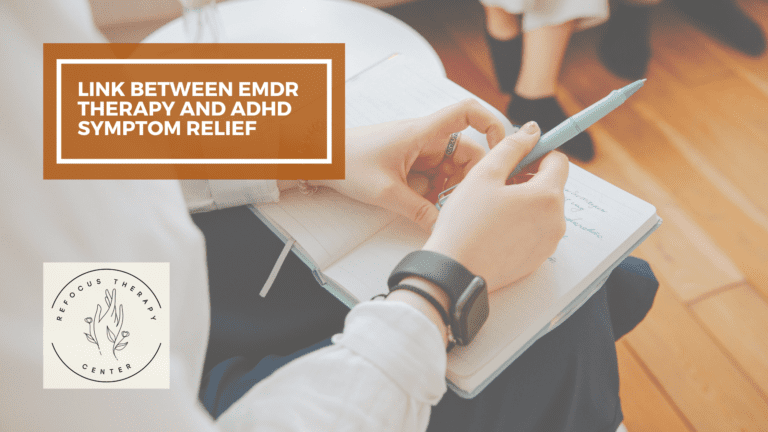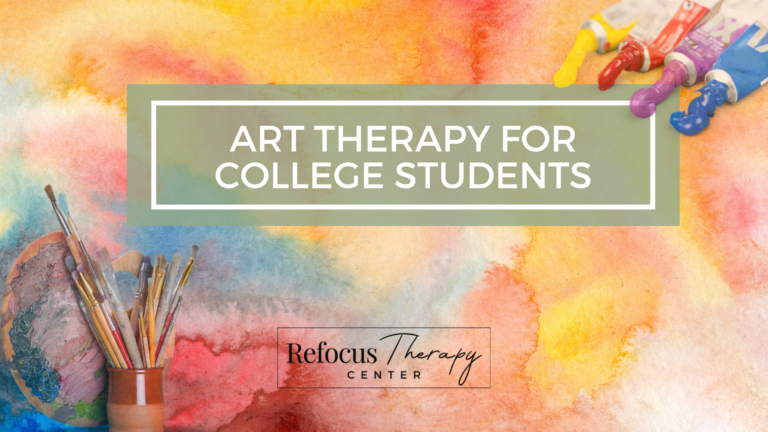Having ADHD can make life challenging when you’re trying to focus on many other things. Nevertheless, emotional dysregulation is a characteristic of life that can be felt intensely at times. Life can feel overwhelming at these times, and relationships and personal well-being can be affected.
Balancing the intensity of emotions may happen when therapy is received to serve as a source of tools and guidance that is useful for managing those emotions and creating a better sense of balance.
This blog will discuss how therapy works in the treatment of emotional dysregulation in ADHD to help bring more calm and control into daily life.
What is Emotional Dysregulation in ADHD?
When people talk about ADHD, they usually refer to difficulties focusing or maintaining focus and attention. However, what the author describes here and more seriously is the inability to self-regulate one’s emotions. That is to say, intense feelings often prove unbearable and become even longer lived than usual after getting angered, saddened, or frustrated. Minor grievances feel catastrophic, for instance.
This can cause people to feel stressed even in regular, everyday situations and sometimes about normal life with family at home, friends, or even coworkers. Fortunately, there are treatments for ADHD emotional dysregulation that can assist one’s fight, and therapy is the most effective way to better control emotions and improve life in general.
How Does Therapy Help Manage ADHD and Emotional Dysregulation?
Therapy provides the space to learn and work through one’s emotions. Many kinds of therapy help a person understand his/her feelings and reactions better. Here is a preview of some of the most sought-after therapies believed to be truly helpful to people who have ADHD and emotional disorders.
Cognitive Behavioral Therapy (CBT)
Cognitive Behavioral Therapy (CBT) is one of the most common therapies for ADHD. It focuses on changing negative thought patterns that might result in solid emotions or impulsive behavior. For instance, someone with ADHD may become extremely angry when he commits an inconsequential error by thinking, “I never get anything right.” In this way, the thought can be challenged and viewed more bilaterally.
The primary CBT advantages for emotional dysregulation:
Identification of Triggers
CBT encourages one to identify what makes them react to extreme emotions so that they can control those emotions with greater efficiency.
Replacing Negative Thoughts
One will find themselves changing the distorted thoughts to look at things much more positively and act much more in control.
Improved Reactions
The stopping and thinking mechanism in the reaction is beneficial for anyone who has ADHD.
It helps treat the emotional dysregulation problem of ADHD by making the person understand how to handle his thoughts that may directly influence his feelings.
Dialectical Behavior Therapy
Dialectical Behavior Therapy (DBT) was developed for individuals with intense emotions and has been very helpful for patients with ADHD. DBT balances acceptance of emotions with change towards the reduction of those emotions. DBT teaches practical skills in handling stress and increasing control of emotions.
Core DBT Skills for ADHD Emotional Dysregulation:
Mindfulness:
DBT teaches people to be mindful, which helps them observe their emotions without judgment. Mindfulness may reduce the effectiveness of any strong emotions and can help people feel less affected by them.
Emotion Regulation:
DBT has skills in managing high emotions, which include determining what emotion one is experiencing, knowing why one is experiencing it, and then knowing how to control it.
Distress Tolerance:
If the emotions are too much to bear, DBT shows how to tolerate the distress without acting impulsively.
DBT helps overcome ADHD emotional dysregulation by providing an opportunity to develop skills for emotional regulation and offering productive skills in managing intense emotions.
Acceptance and Commitment Therapy (ACT)
ACT is unique in its approach to managing emotions. Instead of trying to “get rid” of unwanted emotions, ACT helps people with ADHD tolerate emotions as part of life and learn to decrease stress while finding appropriate responses to emotions.
Benefits of ACT for Emotional Regulation
Embracing Emotions:
ACT teaches the client to embrace all feelings within that may be challenging and unchallenging without an attempt to change them or to avoid them.
Alignment with Values:
ACT will assist the person with identifying what is important to them and guiding their behavior instead of their emotions.
Mindful Flexibility:
ACT encourages thinking and behavior of flexibility, which would help people with ADHD less “locked in” to intense emotions.
ACT can be a helpful component in treating ADHD emotional dysregulation by teaching individuals how to approach their emotions with acceptance and self-compassion, thus arriving at a calmer and more balanced state of mind.
Useful Tools in Emotion Regulation of ADHD
Besides traditional forms of therapies, some simple, effective tools have been found to be beneficial for managing emotional dysregulation. Some methods that help in supporting emotional regulation in ADHD are as follows:
Mindfulness Meditation
Mindfulness meditation is about conscious presence in the here and now. For someone living with ADHD, mindfulness helps increase emotion regulation by helping them understand their feelings better. Mindfulness may also reduce impulsive reactions, helping individuals achieve emotional balance. There are guided meditations and apps through which beginners can easily get started.
Physical Exercise
Physical activity naturally reduces stress and can boost mood, helping people feel calmer and more balanced. Many with ADHD find that regular exercise makes it easier to handle emotions and respond appropriately to stress.
Journaling
Writing down the thoughts and emotions really clarifies the thoughts and emotions. Journaling works very well for people regarding an understanding of their emotions because it brings relief. One actually feels that their emotions have become too much, but writing down the thoughts actually helps people sort out their feelings and get some clarity.
Finding the Right Support
A good treatment plan can really make all the difference in the effective management of emotional dysregulation. Psychotherapy and an ADHD-knowledgeable therapist will provide specific techniques and suggestions to help a person. One may start with one kind of therapy, CBT or DBT, as a base, for example, and then go on to use other techniques, such as mindfulness or journaling, as needed.
Why Therapy Works for ADHD and Emotional Dysregulation
One of the huge goals for someone with ADHD is to feel more in control of their emotions, and therapy will give them very practical tools to achieve this.
Different types of therapy, such as CBT, DBT, or ACT, offer unique skills that teach people to recognize, manage, and respond to emotions in healthier ways. Aids will not make emotions disappear, but it teaches ways to handle them with more ease, improving relationships, boosting self-confidence, and reducing stress.
Managing emotional dysregulation does not mean to “cure” or “get rid of” big feelings. It is learning a way to master or regulate emotions that do not feel overwhelming. By combining resilience and a greater sense of calm and control, therapy is conducted.
Conclusion
So, if you or a loved one have ADHD and experience emotional dysregulation, there are natural ways to make life feel less out of balance and even more in control. The therapy that typically accompanies the treatment of ADHD emotional dysregulation will give you tools and support for navigating emotions more calmly, so it becomes more accessible and more manageable to navigate your own life. And working with experienced professionals can make that process easier and more supportive.









